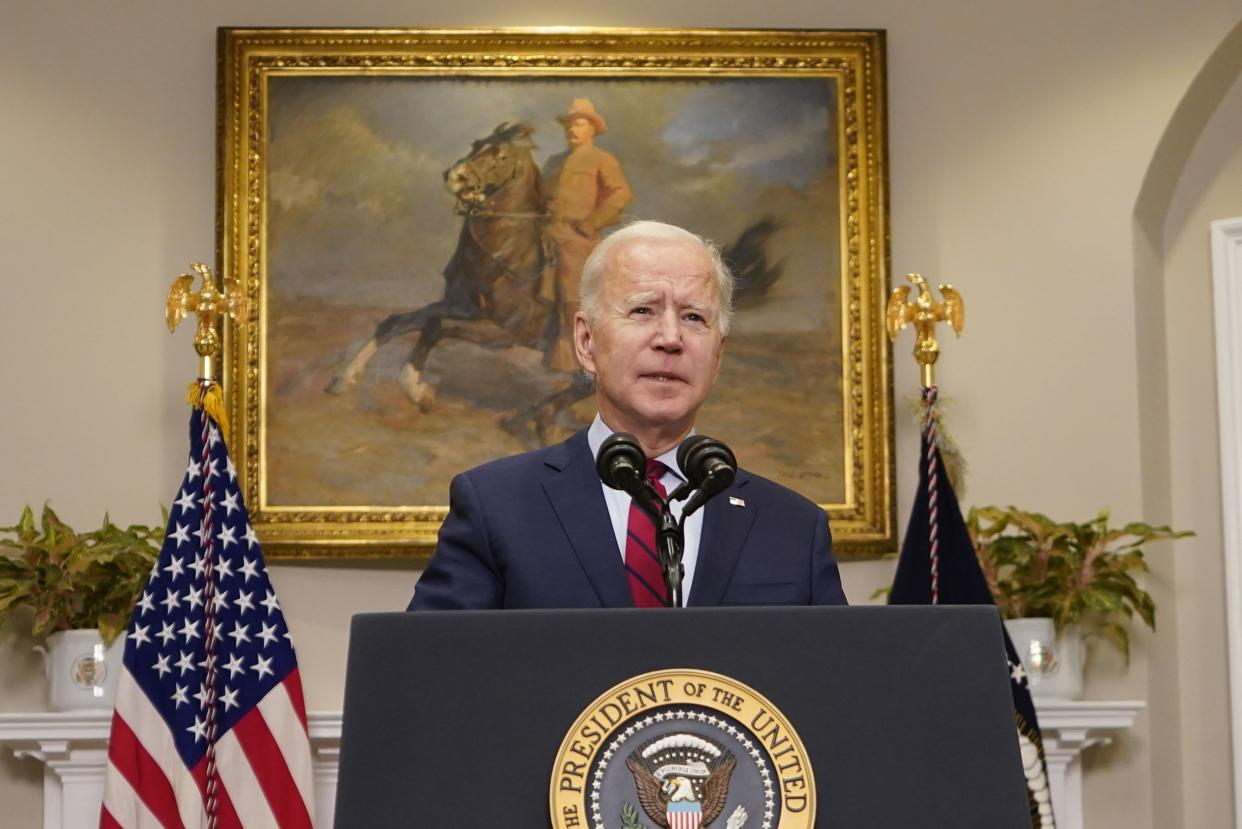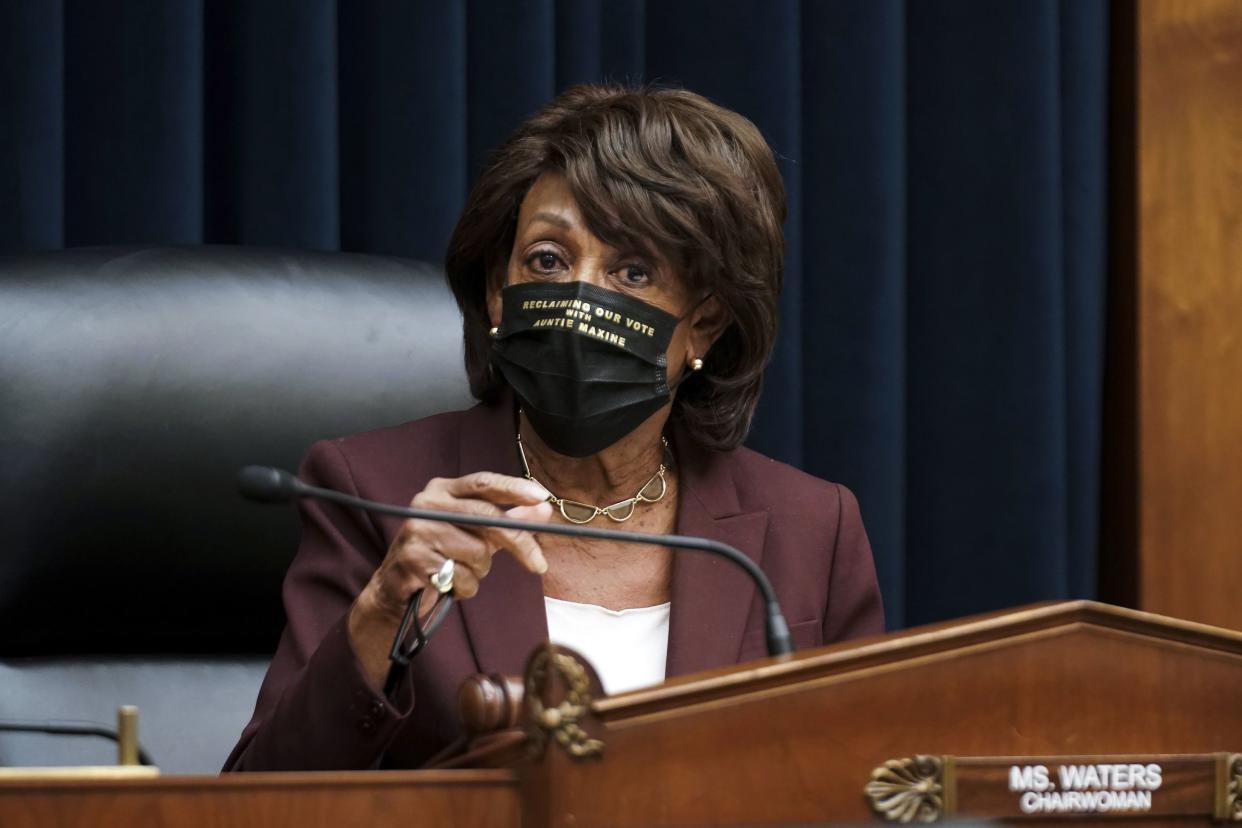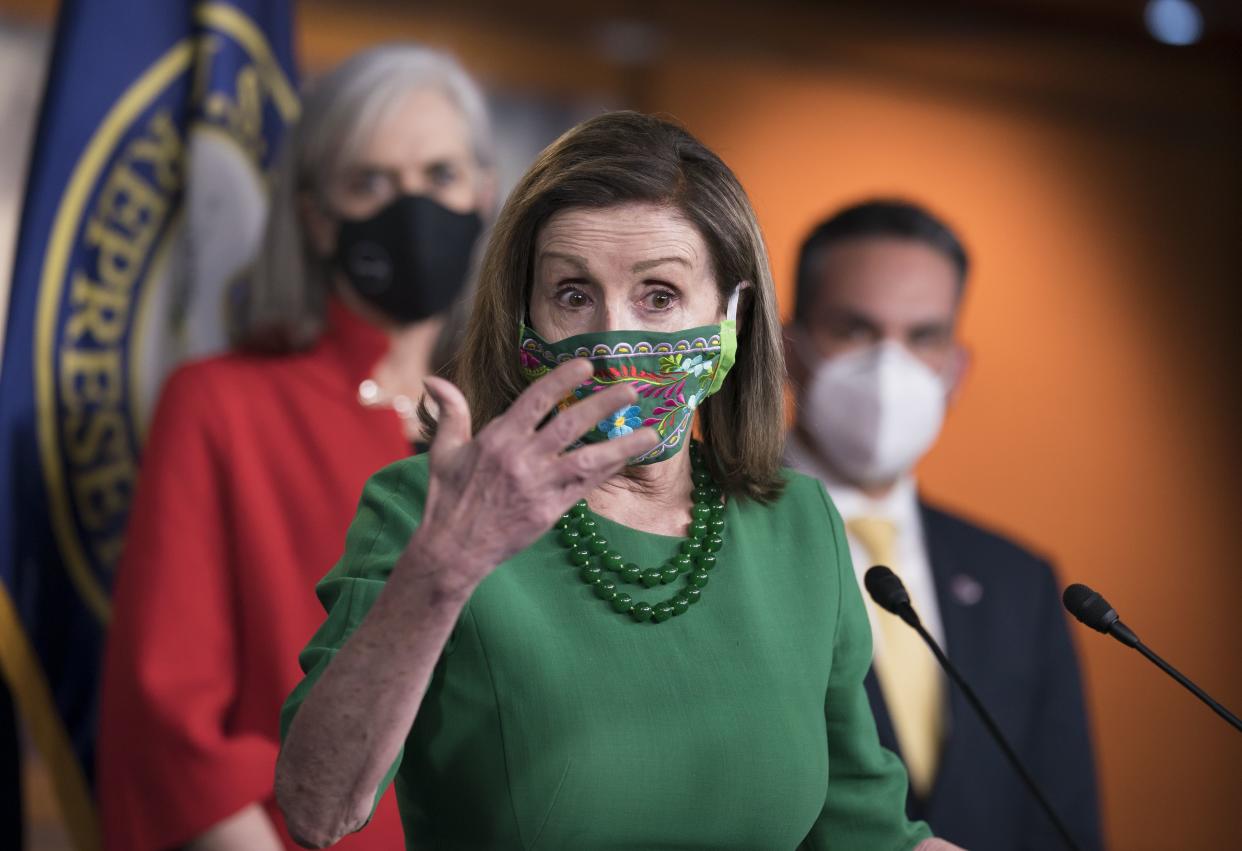‘No time to waste’: Biden urges Senate to pass $1.9 trillion COVID stimulus bill after House approves package in party-line vote
President Biden on Saturday urged the Senate to act quickly to pass a $1.9 trillion coronavirus relief bill after the House of Representatives narrowly passed it in the wee hours of the morning in a mostly party-line vote.
“We have no time to waste,” Biden said. “If we act now, decisively, quickly, and boldly, we can finally get ahead of this virus. We can finally get our economy moving again.”
The new president hailed the House passage as a big step towards ending the pandemic and getting the economy back on its feet.
“We are one step closer to putting $1,400 in the pockets of Americans. We are one step closer to extending unemployment benefits for millions of Americans who are shortly going to lose them. We’re one step closer to helping millions of Americans feed their families and keep a roof over their head,” he said in a two-minute speech.
Biden’s plan to ship cash to individuals, businesses, states and cities battered by COVID-19 passed the House on a near party-line 219-212 vote.
The massive measure now goes to the Senate, where damaging fights could erupt over a stalled push to raise the minimum wage to $15 an hour along with squabbles over state aid and other issues.

Biden stressed that polls show the stimulus is overwhelmingly popular with the American public — even with Republican voters whose lawmakers lined up in lockstep to oppose it.
“The American public has made it clear that they support my (plan),” Biden declared.
Democrats say the stuttering economy and the half-million American lives lost demand quick, decisive action. They said GOP lawmakers were dangerously out of step for seeking to block it.
Republicans say the bill is too expensive and packed with unneeded goodies for liberal special interests and Democratic-run state and local governments.

“To my colleagues who say this bill is bold, I say it’s bloated,” said House Minority Leader Rep. Kevin McCarthy (R-Calif.) “To those who say it’s urgent, I say it’s unfocused. To those who say it’s popular, I say it is entirely partisan.”
Moderate Democratic Reps. Jared Golden of Maine and Kurt Schrader of Oregon were the only two lawmakers to cross party lines to oppose the bill. No GOP lawmakers voted for it, even though they claim to support most of the measures in it.
The sharp partisan divide makes the fight over the bill a showdown over whether voters will reward Democrats for heaping more federal spending to combat the coronavirus and revive the economy atop the $4 trillion approved last year.
The battle is also emerging as an early test of Biden’s ability to hold together his party’s fragile congressional majorities — just 10 votes in the House and an evenly divided 50-50 Senate.
Democrats were trying to figure out how to assuage progressives who lost their top priority — a big boost in the minimum wage — in a jarring Senate rules setback Thursday.
That chamber’s nonpartisan parliamentarian, Elizabeth MacDonough, said Senate rules require that a federal minimum wage increase would have to be dropped from the COVID-19 bill, leaving the proposal on life support. It would more than double the current $7.25 floor that’s been in effect for more than a decade.
Senate Majority Leader Chuck Schumer (D-N.Y.) is considering adding a provision to the Senate version of the COVID-19 relief bill that would penalize large companies that don’t pay workers at least $15 an hour
House Speaker Nancy Pelosi (D-Calif.) called a minimum wage increase “a moral imperative for our country.”

Progressives were demanding that the Senate press ahead with the minimum wage increase, even if it meant changing that chamber’s rules and eliminating the filibuster, a tactic that requires 60 votes for a bill to move forward.
Rep. Alexandria Ocasio-Cortez (D-N.Y.) insisted Senate rules must be changed, telling reporters that when Democrats meet with their constituents, “We can’t tell them that this didn’t get done because of an unelected parliamentarian.”
The overall relief bill would provide $1,400 payments to individuals, extend emergency unemployment benefits through August and increase tax credits for children and federal subsidies for health insurance.
It also provides billions for schools and colleges, state and local governments, COVID-19 vaccines and testing, renters, food producers and struggling industries like airlines, restaurants, bars and concert venues.
Democrats are pushing the relief measure through Congress under special rules that will let them avoid a Senate GOP filibuster, meaning that if they are united they won’t need any Republican votes.
It also lets the bill move faster, a top priority for Democrats who want the bill on Biden’s desk before the most recent emergency jobless benefits end on March 14.
But those same Senate rules prohibit provisions with only an “incidental” impact on the federal budget because they are chiefly driven by other policy purposes. MacDonough decided that the minimum wage provision failed that test.
Republicans and some moderate Democrats say the $15 minimum wage would hurt small businesses and cost jobs.
With News Wire Services
